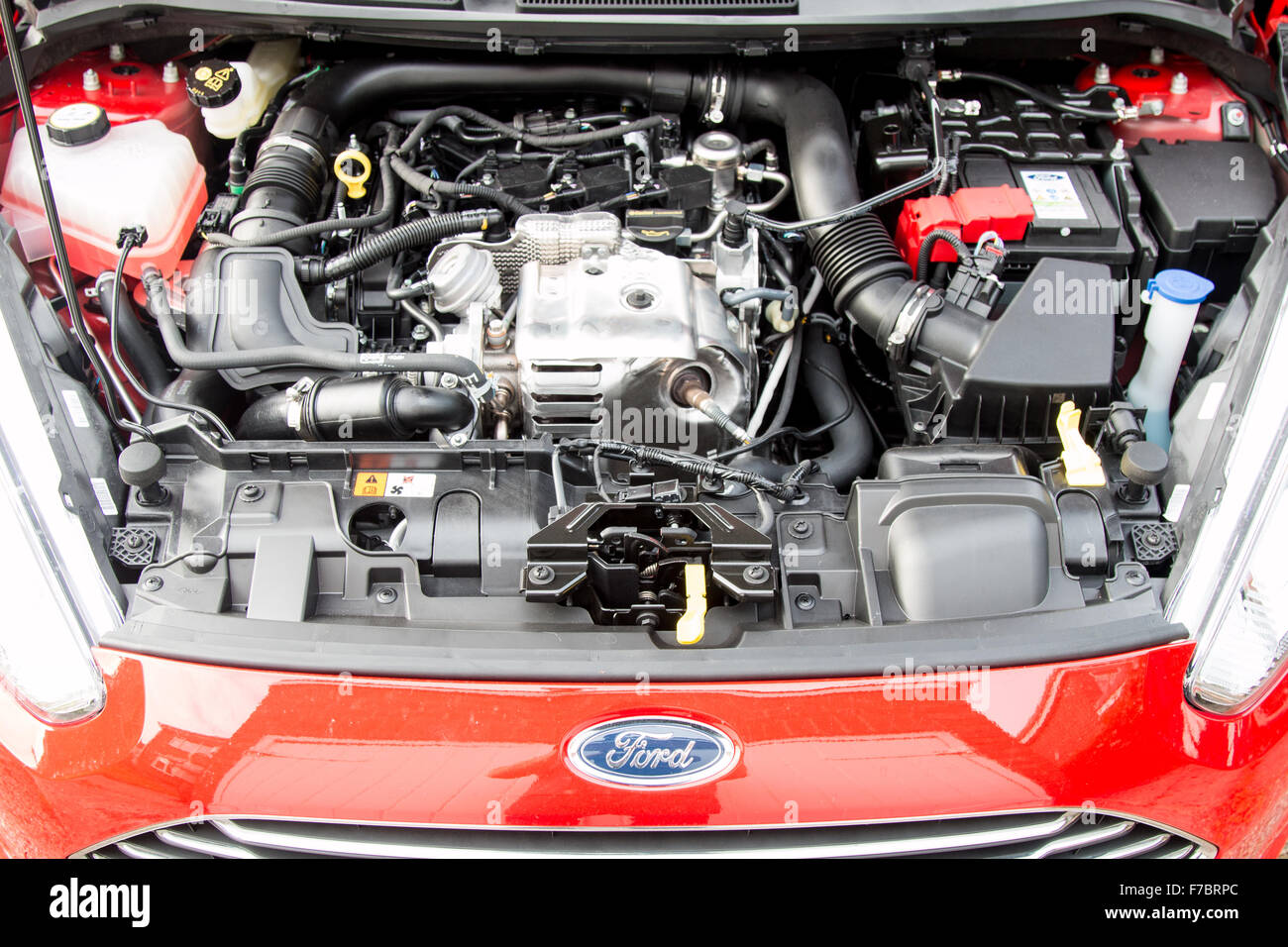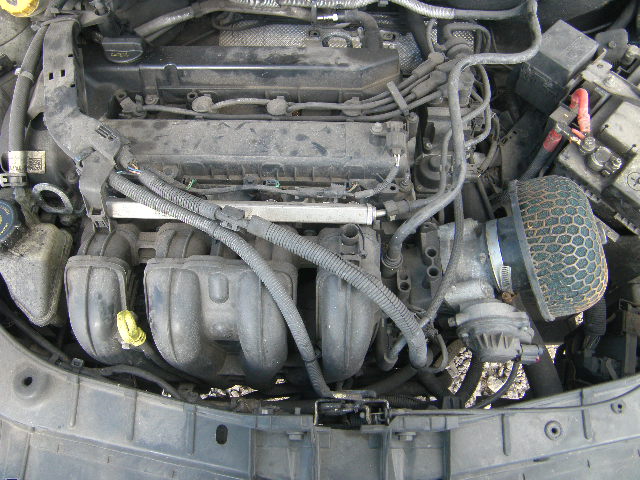Discover the Latest Ford Fiesta Engine Upgrades for Enhanced Power
Discover the Latest Ford Fiesta Engine Upgrades for Enhanced Power
Blog Article
The Future of Engines: Innovations Driving Lasting Power Solutions
As the automotive industry browses the crucial shift in the direction of sustainability, the future of engines is significantly defined by groundbreaking developments. Electric engine improvements, alongside encouraging advancements in hydrogen gas cells and biofuels, are reshaping the landscape of power remedies. The introduction of hybrid systems further complicates this development, providing both chances and obstacles to decrease exhausts successfully. Coupled with the combination of synthetic intelligence in engine design, these technological strides elevate critical inquiries about their lasting stability and effect on standard standards. What might this suggest for the market and consumers alike?
Electric Engine Dope
The advancement of electric engine advancements signifies a crucial shift in the aerospace and vehicle markets, driven by the immediate requirement for sustainable alternatives to nonrenewable fuel sources. This change is identified by significant advancements in battery modern technology, power electronic devices, and electric motor design, which collectively boost the performance and performance of electric engines.
Current innovations have brought about the development of lighter, much more energy-dense batteries, such as lithium-silicon and solid-state batteries, which guarantee longer ranges and much shorter charging times. Additionally, improvements in electrical motor effectiveness, such as making use of irreversible magnets and advanced cooling systems, allow electrical engines to operate successfully under differing conditions. These improvements not just improve vehicle efficiency but additionally add to a reduction in overall power usage.
Furthermore, the combination of sophisticated software application algorithms has enhanced energy monitoring in electrical lorries, allowing for regenerative braking and anticipating billing methods. As suppliers progressively embrace electric propulsion, the vehicle and aerospace markets are observing a paradigm shift towards greener innovations. This advancement not only fulfills regulatory needs yet additionally straightens with consumer choices for eco-friendly transportation solutions, strengthening electrical engines as a cornerstone of future sustainable flexibility.
Developments in Biofuels
As the aerospace and automotive sectors increasingly prioritize lasting power resources, innovations in biofuels emerge as a complementary solution to electric engines. Biofuels, originated from natural materials such as plants, waste, and algae, offer a cutting-edge method for lowering greenhouse gas exhausts and dependence on nonrenewable fuel sources.
Current research study has focused on enhancing the efficiency and sustainability of biofuel manufacturing. Second-generation biofuels make use of non-food feedstocks, decreasing competition with food supply and minimizing environmental impact. Innovations in artificial biology have allowed the design of bacteria to produce biofuels extra properly, leading to higher returns and reduced production expenses.
Furthermore, the advancement of drop-in biofuels permits seamless assimilation right into existing infrastructure, allowing a smoother shift for industries traditionally based on fossil fuels. ford fiesta engine. These fuels can be used in present engines without modifications, facilitating their fostering across different industries
Investments in biofuel technology, in addition to supportive plans, are essential to drive innovation and scalability. As the worldwide community looks for to deal with climate change, biofuels use a pragmatic, prompt remedy that straightens with the overarching goal of sustainability in transportation and aeronautics.
Hydrogen Gas Cell Modern Technology
An expanding number of scientists and firms are exploring hydrogen fuel cell innovation as a sensible option to traditional source of power in transport and energy systems. This modern technology converts chemical energy from hydrogen right into electrical power through an electrochemical response, with water as the only result, making it an ecologically pleasant alternative.
The core of hydrogen gas cells is the fuel cell pile, where hydrogen particles are divided right into protons and electrons. The circulation of electrons generates electrical energy, while protons move with a membrane layer to combine with oxygen from the air, creating water. This process leads to high effectiveness and reduced emissions, placing hydrogen fuel cells as a vital player in the transition to lasting power.
Significant improvements have been made in enhancing the durability and performance of gas cells, together with decreasing prices with cutting-edge manufacturing techniques. Moreover, the growth of hydrogen manufacturing techniques, such as electrolysis powered by renewable resource resources, improves the sustainability of the total system. As framework for hydrogen refueling expands and manufacturing methods end up being more reliable, hydrogen gas cell modern technology holds fantastic assurance for decarbonizing various fields, including sturdy transportation and stationary power generation.
Crossbreed Equipments and Their Impact
Hybrid systems stand for a considerable advancement in sustainable engine technology, combining standard internal burning engines with electrical propulsion to optimize power efficiency and reduce emissions (ford fiesta engine). This dual method permits cars to make use of both power sources, enabling better adaptability in power intake and decreasing dependence on nonrenewable fuel sources

Along with environmental benefits, hybrid systems offer customers a feasible change in the direction of fully electric vehicles. They reduce array stress and anxiety by combining the convenience of gas with the advantages of electric propulsion, making them an appealing choice for a larger target market. As makers spend in hybrid technology, the advancement of even more advanced battery systems and light-weight materials proceeds to boost efficiency. Overall, crossbreed systems represent a pivotal step towards accomplishing sustainable transportation and addressing the urgent demand for eco-friendly power services.
The Role of AI in Engine Style
Leveraging innovative algorithms and device knowing strategies, the auto market is increasingly incorporating expert system (AI) into engine design processes. AI improves the performance and efficiency of style by evaluating substantial datasets to recognize ideal setups and efficiency criteria. This capacity permits engineers to mimic numerous operating conditions and anticipate engine actions under multiple scenarios, significantly minimizing the time and price related to conventional prototyping approaches.
In addition, AI assists in the development of sophisticated products and combustion weblink procedures tailored for sustainability. By optimizing article fuel efficiency and reducing exhausts, AI-driven designs line up with worldwide initiatives intended at reducing the carbon footprint of vehicle engines. Machine learning formulas can also forecast maintenance requirements, resulting in improved reliability and longevity of engine components.
Moreover, AI is critical in the integration of electrification modern technologies, such as crossbreed systems, where it can optimize battery administration and energy recuperation procedures. As the sector moves in the direction of even more lasting power options, the duty of AI in engine design becomes significantly vital, driving technology and boosting the performance of future engines. Eventually, the collaboration in between AI and engine design proclaims a new era of smarter, cleaner, and much more efficient vehicle modern technologies.

Final Thought
In verdict, the future of engines is being formed by a convergence of innovative technologies that prioritize sustainability. Electric engine advancements, biofuel developments, hydrogen fuel cells, and hybrid systems collectively contribute to a considerable decrease in emissions and ecological influence.
Electric engine developments, together with appealing developments in hydrogen fuel cells and biofuels, are improving the landscape of power options. Additionally, improvements in electric motor effectiveness, such as the usage of irreversible magnets and progressed cooling systems, allow electrical engines to operate successfully under varying problems. By maximizing gas performance and minimizing emissions, AI-driven layouts line up with international campaigns aimed at decreasing the carbon footprint of vehicle engines. As the sector moves in the direction of even more lasting power remedies, the duty of AI in engine layout becomes progressively more info here vital, driving development and enhancing the performance of future engines. Electric engine developments, biofuel growths, hydrogen gas cells, and crossbreed systems jointly add to a considerable decrease in exhausts and environmental effect.
Report this page